Conduction
Conduction is the process by which heat or electricity is directly transmitted through a substance when there is a difference of temperature or of electrical potential between adjoining regions, without movement of the material.
Factors Affecting Conduction
- Material: Different materials conduct heat at different rates. Metals, for example, are generally good conductors of heat, while materials like wood and plastic are poor conductors.
- Temperature Difference: The greater the difference in temperature between the two ends of a conducting material, the faster heat will be conducted.
- Surface Area: The larger the surface area in contact, the more efficient the conduction of heat.
- Thickness: Thinner materials generally conduct heat more quickly than thicker materials.
Examples of Conduction
Some common examples of conduction include:
- Touching a metal spoon that has been sitting in a hot cup of coffee and feeling the heat in the handle.
- Placing a metal rod in a flame and feeling the other end getting hot.
Study Guide
Here are some key points to remember about conduction:
- Conduction is the direct transfer of heat or electricity through a substance.
- It occurs due to the collision of particles within a material, leading to the transfer of energy.
- Materials that conduct heat well are called conductors, while those that do not are called insulators.
- The rate of conduction depends on the material, temperature difference, surface area, and thickness of the material.
- Conduction is an important concept in understanding how heat is transferred within and between materials.
Understanding conduction can help in various fields such as engineering, materials science, and thermodynamics.
.◂Science Worksheets and Study Guides Sixth Grade. Fishes, Amphibians, and Reptiles
Study Guide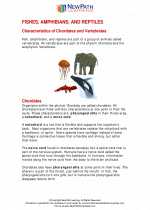 Fishes, Amphibians, and Reptiles
Fishes, Amphibians, and Reptiles  Activity Lesson
Activity Lesson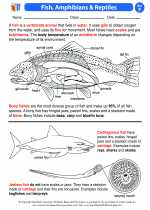 Fish, Amphibians & Reptiles
Fish, Amphibians & Reptiles  Worksheet/Answer key
Worksheet/Answer key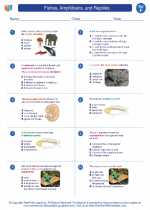 Fishes, Amphibians, and Reptiles
Fishes, Amphibians, and Reptiles  Worksheet/Answer key
Worksheet/Answer key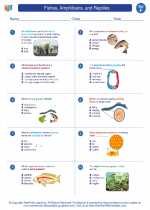 Fishes, Amphibians, and Reptiles
Fishes, Amphibians, and Reptiles  Worksheet/Answer key
Worksheet/Answer key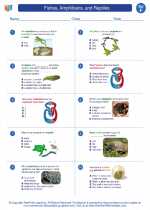 Fishes, Amphibians, and Reptiles
Fishes, Amphibians, and Reptiles  Worksheet/Answer key
Worksheet/Answer key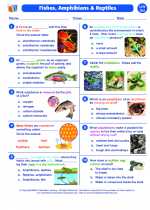 Fishes, Amphibians, and Reptiles
Fishes, Amphibians, and Reptiles  Vocabulary/Answer key
Vocabulary/Answer key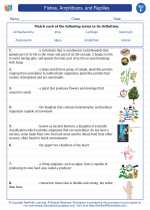 Fishes, Amphibians, and Reptiles
Fishes, Amphibians, and Reptiles  Vocabulary/Answer key
Vocabulary/Answer key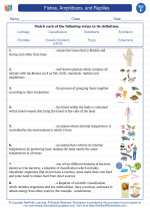 Fishes, Amphibians, and Reptiles
Fishes, Amphibians, and Reptiles  Vocabulary/Answer key
Vocabulary/Answer key Fishes, Amphibians, and Reptiles
Fishes, Amphibians, and Reptiles  Vocabulary/Answer key
Vocabulary/Answer key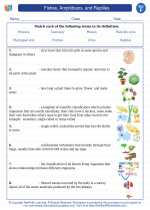 Fishes, Amphibians, and Reptiles
Fishes, Amphibians, and Reptiles  Vocabulary/Answer key
Vocabulary/Answer key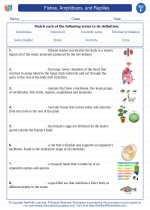 Fishes, Amphibians, and Reptiles
Fishes, Amphibians, and Reptiles 

 Activity Lesson
Activity Lesson
 Worksheet/Answer key
Worksheet/Answer key
 Worksheet/Answer key
Worksheet/Answer key
 Worksheet/Answer key
Worksheet/Answer key
 Worksheet/Answer key
Worksheet/Answer key
 Vocabulary/Answer key
Vocabulary/Answer key
 Vocabulary/Answer key
Vocabulary/Answer key
 Vocabulary/Answer key
Vocabulary/Answer key
 Vocabulary/Answer key
Vocabulary/Answer key
 Vocabulary/Answer key
Vocabulary/Answer key

The resources above cover the following skills:
LIFE SCIENCE
From Molecules to Organisms: Structures and Processes